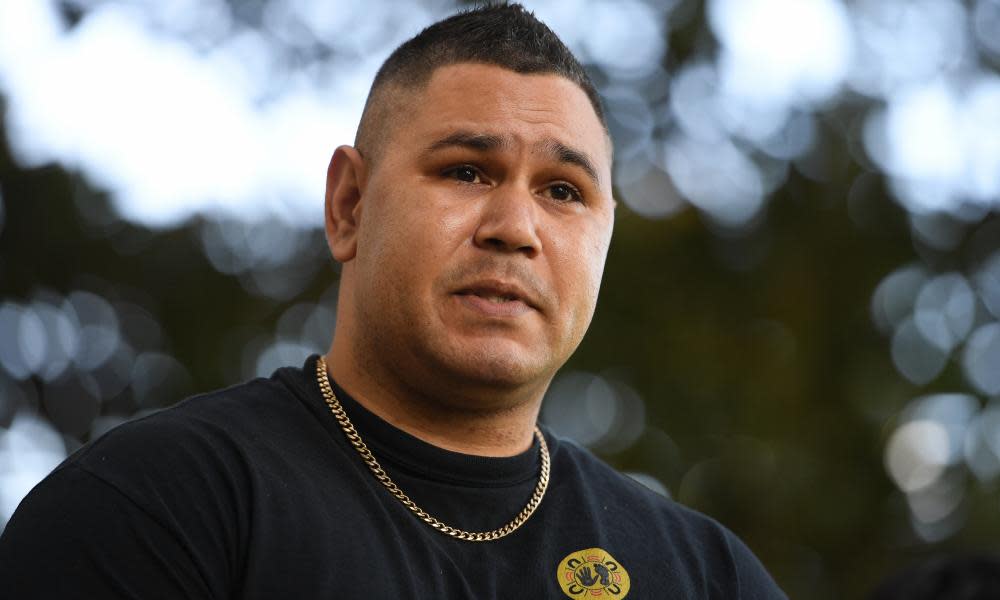High rate of Aboriginal incarceration 'starts young', NSW inquiry hears

A New South Wales parliamentary inquiry into the high rate of Aboriginal incarceration has been told that “it starts young”, with disproportionate rates of young Aboriginal children entering the justice system directly from out of home care.
The hearings are taking place in the same week that NSW coroners investigate two Aboriginal deaths in custody: 36-year-old Anaiwan man Nathan Reynolds, who died of an untreated asthma attack in prison in 2018, and 43-year-old Dwayne Johnstone, who was shot while handcuffed in custody on a Lismore street in 2019.
Keenan Mundine, the cofounder of Deadly Connections, a nonprofit that works with Aboriginal youth, told the inquiry of his personal experience of being harassed and beaten by police as a youth.
Mundine lost both parents at a young age and was placed in out of home care, separated from his siblings.
Related: Stop reporting and start doing, lawyers tell NSW inquiry into 'inhumane' Indigenous incarceration
“I didn’t have my parents to be able to look after me and nobody understood why I was out walking the street at three o’clock in the morning, because I didn’t have a home to go to,” he said.
“The police always targeted me. It got to the point where police knew me by my first name. When I was released from custody they would drive past and say, “are you back at it again?”
“I don’t see other families and communities being terrorised like this.”
According to Bureau of Crime statistics and research, Aboriginal people in custody were younger when they first interacted with police and when they were first convicted compared to non-Aboriginal people in custody, and experienced higher rates of contact at all levels of the criminal justice system.
Mundine said Deadly Connections works with Aboriginal people, families and communities experiencing the intersection of the child protection and justice systems, to keep young people out of detention.
“There is a lot of research and statistics in these submissions [to the inquiry] but there is not a lot of research that prison actually works,” Mundine said.
“When you enter at 10 or 14 and have a criminal record, what future do you have? One that’s dependent on welfare and government housing. And if that’s not adequate enough, what resources do you turn to? Illegal activity. So there’s a lot of factors that need to be addressed to make a big impact in this climate, and to change this overwhelming and shockingly disproportionate rates of my people that are entrenched in the child protection and justice system,” he said.
Earlier, the Change the Record coalition – representing national justice groups working to end the disproportionate incarceration of Aboriginal and Torres Strait Islander peoples – reiterated its call to raise the age of criminal responsibility from 10 years old to at least 14.
The parliamentary inquiry has been set up to look into “the unacceptably high level” of Aboriginal people in custody, the suitability of the organisations that investigate deaths, and how they could be improved.
The committee will hold further hearings in early December.

 Yahoo News
Yahoo News 
